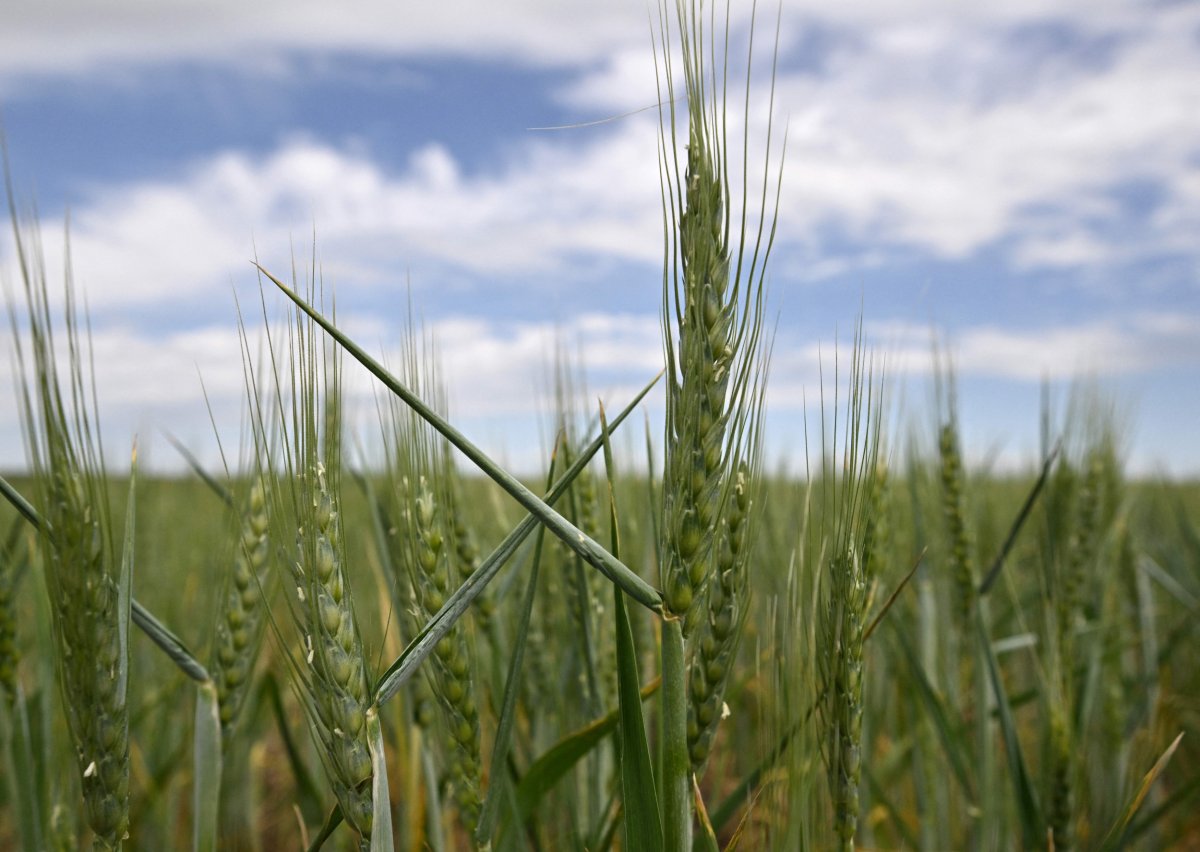Wheat prices on world markets shot up 6 percent on a single day recently—approaching highs seen at the start of Russia's full-scale invasion of Ukraine in February. The jolt in prices, which have gone up over 40 percent so far this year, was the result of an announcement from India—the world's second largest wheat grower after China—that it had instituted a ban on exports due to concerns over food security.
India is not currently an important wheat exporter and has cited the impact of a damaging heat wave for the ban. But the move stoked fears of a breakdown in global trading already under pressure as Russia's invasion has disrupted wheat and other agricultural commodities. Hungary announced a similar ban soon after Russian forces moved into Ukraine; at the end of April, Indonesia imposed restrictions on exports of types of palm oil that lasted for three weeks in a bid to reduce domestic prices for cooking oil.
These global ripple effects of the war also include an increase in oil prices of over 30 percent since the end of January. They are spreading across a world that has been already hard hit by the impact of the COVID-19 pandemic—putting most pressure on those countries least able to bear the strain. Bread prices in Tunisia, for instance, are up more than 20 percent since the February invasion, leading to street protests, while in Cameroon the cost of a bag of wheat flour has more than doubled.
But so far the robust, broad ranging international response that we need to see has yet to materialize. Agriculture ministers of the Group of Seven (G7) industrialized nations, meeting in Germany, warned that the Indian ban could make the food supply crisis worse, and said they would coordinate a multi-lateral response and "stand by our most vulnerable partners." And two high-level meetings on global food security convened at U.N. headquarters in May to draw attention to the escalating crisis and urge immediate steps to aid those in most need. But talking is not enough.
The time for action is now—if the world is to avoid cascading political instability in the Global South sparked by rising costs for ordinary people. Sri Lanka's default and political crisis, although years in the making, may well be a marker of what is around the corner in Egypt, Peru and other countries.
Elsewhere, the governments of Zambia and Chad are in negotiations with the IMF over economic support packages, while the World Bank has warned that 60 percent of the least developed and other low-income countries are already at high risk of entering "debt distress."
These issues must be high on the agenda at the G7 summit in Germany. On the issue of food supplies, it's encouraging to hear that European countries are working to develop alternative routes for the 5 to 6 million tons of wheat per month that Ukraine would normally export through Black Sea ports now controlled by Russia.

But the Global North needs to face up to the wider challenges, and to recognize both the humanitarian and political necessity of a response that supports the G7's "most vulnerable partners."
In the main, that comes down to balance of payments support.
In low-income countries, food prices to the poorest are supported by government subsidies. So higher market prices lead to greater demands on government budgets in countries that are also laboring under high debt burdens.
A global effort to provide this sort of fiscal support was launched last year through the IMF, with its largest ever issuance of Special Drawing Rights (SDR) worth $650 billion to buoy global liquidity.
This was a welcome move. But the bulk of these SDRs went to the wealthiest countries, since SDRs were issued in amounts corresponding to shareholding rights at the IMF. The G20 rightly promised to channel these resources onward, and committed to make $100 billion available for struggling countries via international financial institutions like the IMF.
But nearly a year later, pledges have reached only $60 billion, and not a cent has been disbursed. Despite U.S. leadership in this commitment, and in setting up the associated trust fund at the IMF, the U.S. has so far failed to contribute anything to the effort. Meanwhile, in Europe, the European Central Bank has blocked countries from lending out their unused SDRs. Without the multilateral banks, which are among the few institutions permitted to hold SDRs, it is difficult to see how the G20's target will ever be reached.
If the U.S. and Europe are serious about leading the way through this crisis, they must, at the very least, make good on their existing, bare minimum commitments. They must also boost the multilateral response to the crisis with new concessional resources, more effective management of existing resources and more grants for the poorest countries. When the G7 leaders meet at their summit this month, these issues need to be at the center of the agenda—viewed as one and the same as the pressing questions of how to support Ukraine as it fights back against a catastrophic act of aggression that threatens all of us.
Mark Malloch-Brown is the president of the Open Society Foundations, the largest global private human rights funder. Follow him on Twitter @malloch_brown.
The views expressed in this article are the writer's own.
Uncommon Knowledge
Newsweek is committed to challenging conventional wisdom and finding connections in the search for common ground.
Newsweek is committed to challenging conventional wisdom and finding connections in the search for common ground.
About the writer
To read how Newsweek uses AI as a newsroom tool, Click here.






